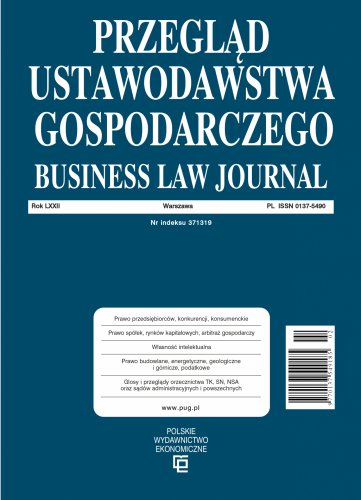Journal of Business Law 06/2023
ISSN: 0137-5490
Pages: 40
Publication date: 2023
Place publication: Warszawa
Binding: paperback
Format: A4
Publication date: 2023
Place publication: Warszawa
Binding: paperback
Format: A4
DOI: 10.33226/0137-5490.2023.6.1
JEL: G21, H53, H54, H76, H81
DOI: 10.33226/0137-5490.2023.6.2
JEL: K15, K20, L20, L21, L22
DOI: 10.33226/0137-5490.2023.6.3
JEL: K15
DOI: 10.33226/0137-5490.2023.6.4
JEL: K22
DOI: 10.33226/0137-5490.2023.6.5
JEL: K23
| Odbiór osobisty | 0 € |
| Kurier Inpost | 4 € |
| Kurier FedEX | 4 € |
| Inpost Paczkomaty | 4 € |
| Free delivery in Reader's Club | from 47 € |

